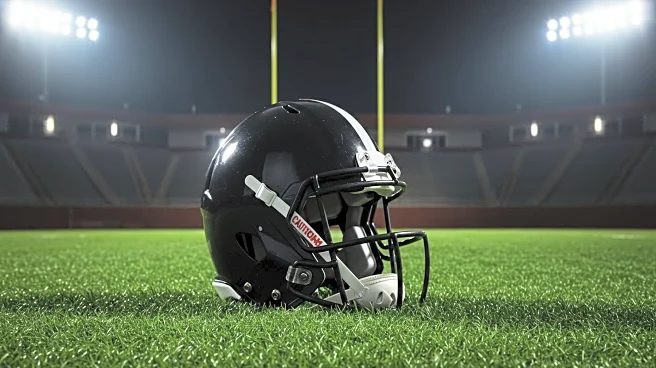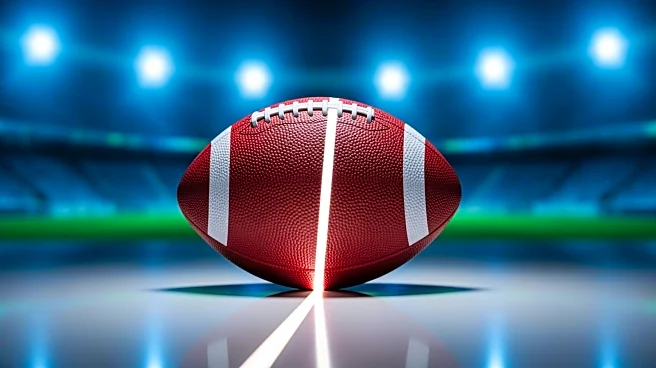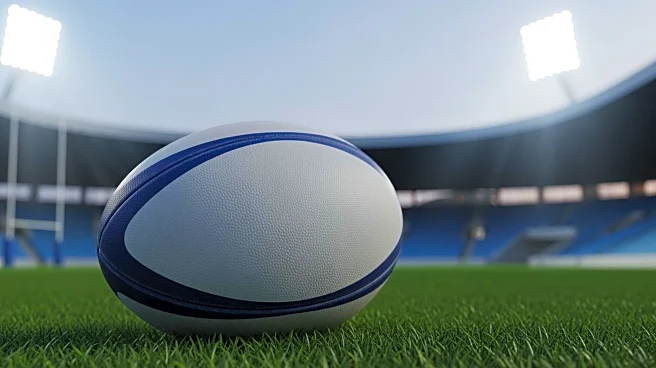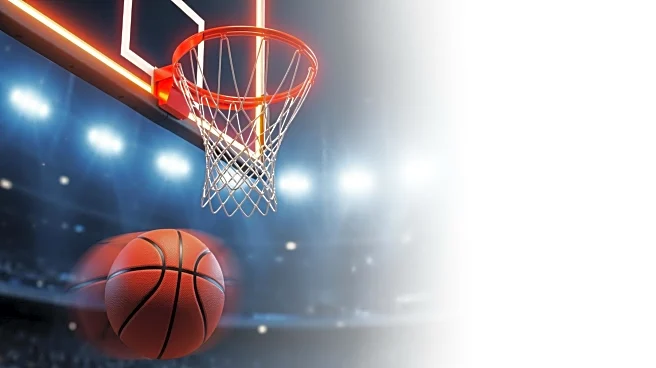What is the story about?
What's Happening?
The Michigan Wolverines football program has been penalized by the NCAA Committee on Infractions due to a sign-stealing operation led by former staffer Connor Stalions during their 2023 national championship season. The penalties include a $50,000 fine, a 10% reduction in the football program's budget, and a fine equivalent to 10% of the scholarships awarded next season. Additionally, Michigan will forfeit its share of postseason revenue from the Big Ten for the next two seasons. The program will also face a 25% reduction in official recruiting visits and a 14-week probation on recruiting communications. Former coach Jim Harbaugh received a 10-year show-cause penalty, while current coach Sherrone Moore's suspension was increased to three games. Connor Stalions received an eight-year show-cause order.
Why It's Important?
The penalties highlight the NCAA's stance on maintaining integrity within college sports, particularly in high-profile programs like Michigan. The financial and recruiting restrictions could impact Michigan's competitiveness in future seasons, affecting its ability to attract top talent. The decision not to impose a postseason ban reflects a shift in NCAA policy, prioritizing financial penalties over direct competition restrictions. This approach aims to avoid penalizing current student-athletes for past infractions by coaches and staff no longer associated with the program.
What's Next?
Michigan plans to appeal the NCAA's decision, arguing that the committee made errors in interpreting NCAA bylaws and reached conclusions contrary to the evidence. The appeal process could lead to adjustments in the penalties imposed. Meanwhile, the program must navigate the upcoming seasons with reduced resources and recruiting capabilities, potentially affecting its performance and standing in college football.
Beyond the Headlines
The scandal underscores the evolving nature of college sports regulations, particularly in the context of sign-stealing and scouting practices. It raises questions about the ethical boundaries of competitive advantage and the role of technology in sports strategy. The case also highlights the challenges the NCAA faces in enforcing rules amid changing dynamics in college athletics.
















